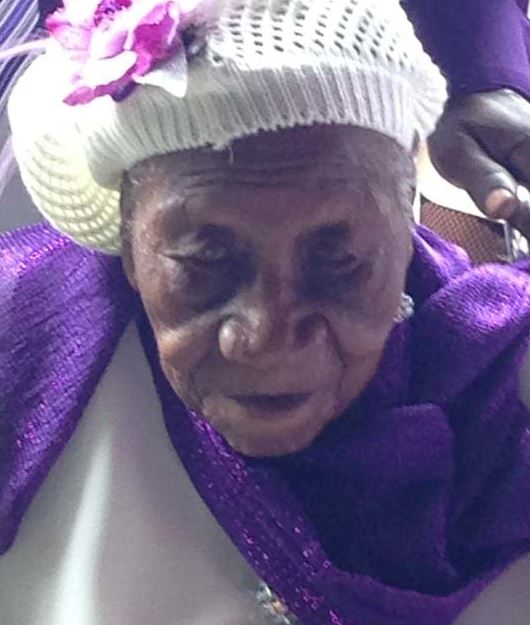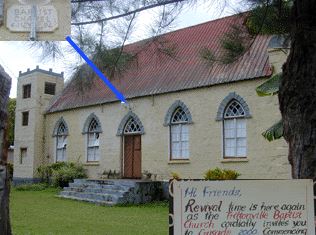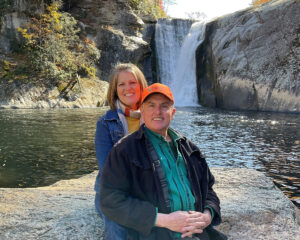
DUANVALE, Jamaica (BP) — What has the world’s oldest person, Violet Mosse-Brown, age 117, done nearly all her life?
She has been a faithful, industrious church member, according to the Jamaica Baptist Reporter of the Jamaica Baptist Union.

“I live by the grace of God and I am proud of my age!” Mosse-Brown told columnist Jean Lowrie Chin of the Jamaica Observer during a May 2016 visit in the home where the mother of six children has lived all her life.
Mosse-Brown’s 96-year-old son, Harold Fairweather, lives in the house as well, “widely believed to be the oldest person with a living parent,” Chin wrote.

The Waldensia-Trittonville Circuit of Baptist Churches honored Mosse-Brown as “their extra-precious super-centenarian whom they affectionately call Sister Vie or Sister Brown” during a celebration of her then-116 years of life, according to the January 2017 edition of the Jamaica Baptist Reporter.
“[T]he guest of honor was lauded and cited as a person of exemplary character and an ardent, dedicated and faithful servant of God, who served her church for more than 80 years in varying capacities,” the Baptist publication noted.
“She was also hailed as a mentor, historian, disciplinarian, business woman, outstanding church and community leader.”
The Jamaica Baptist Reporter article listed still more accolades, noting that participants at the celebration credited Mosse-Brown “for giving herself fully to the music and Christian education ministries of the church,” serving as its organist and choir director “for many years” and as a Sunday School teacher and deacon. (An article amplifying the Jamaica Baptist Union’s view of the deaconate also is in the January 2017 edition.)
Jamaican pastor Hariff Allison told the gathering, “She was instrumental in changing the roof of the church and adding an overnight facility for pastors. Back in the old days, the church had only visiting pastors and they would have to sleep in the church if they wanted to stay overnight or for a few days.” Mosse-Brown, the pastor said, “changed that situation by spearheading the people to build an adjoining room on to the church for accommodating visiting pastors.”
Mosse-Brown may have been a Methodist for part of her life, an article in The Jamaica Online Star suggested 10 years ago, reporting that she met her husband Augustus, who died in 1978, when they were members of Fraserville Methodist Church in Duanvale.
Chin, of the Jamaica Observer, wrote that Mosse-Brown and her husband worked as cane farmers, and later she assisted him as the caretaker for a neighboring cemetery, keeping records in “beautiful handwriting [that] is a testament to the pride she took in her work.”
“Really and truly,” Mosse-Brown told The Gleaner, “when people ask what me eat and drink to live so long, I say to them that I eat everything, except pork and chicken, and I don’t drink rum and dem tings.”
Duanvale, incidentally, is in the same Jamaican parish, or district, Trelawny, where Olympian gold medalist Usain Bolt is from.
Trelawny is an inland region “which, from the air, looks lush with conical mountains and ferocious waterfalls,” travel writer Richard Moore of The Guardian of London recounted in 2015. “Up close it is even more spectacular, the roads narrow and [are] heavily potholed as they weave through the mogul-like hills and dense forest….”
The region’s coastal capital, Falmouth, 16 kilometers to the north of Duanvale, “with its dusty roads, crumbling buildings and hand-painted signs above shops — it is as if the clock stopped in 1810, when the town was in its colonial pomp,” Moore wrote.














